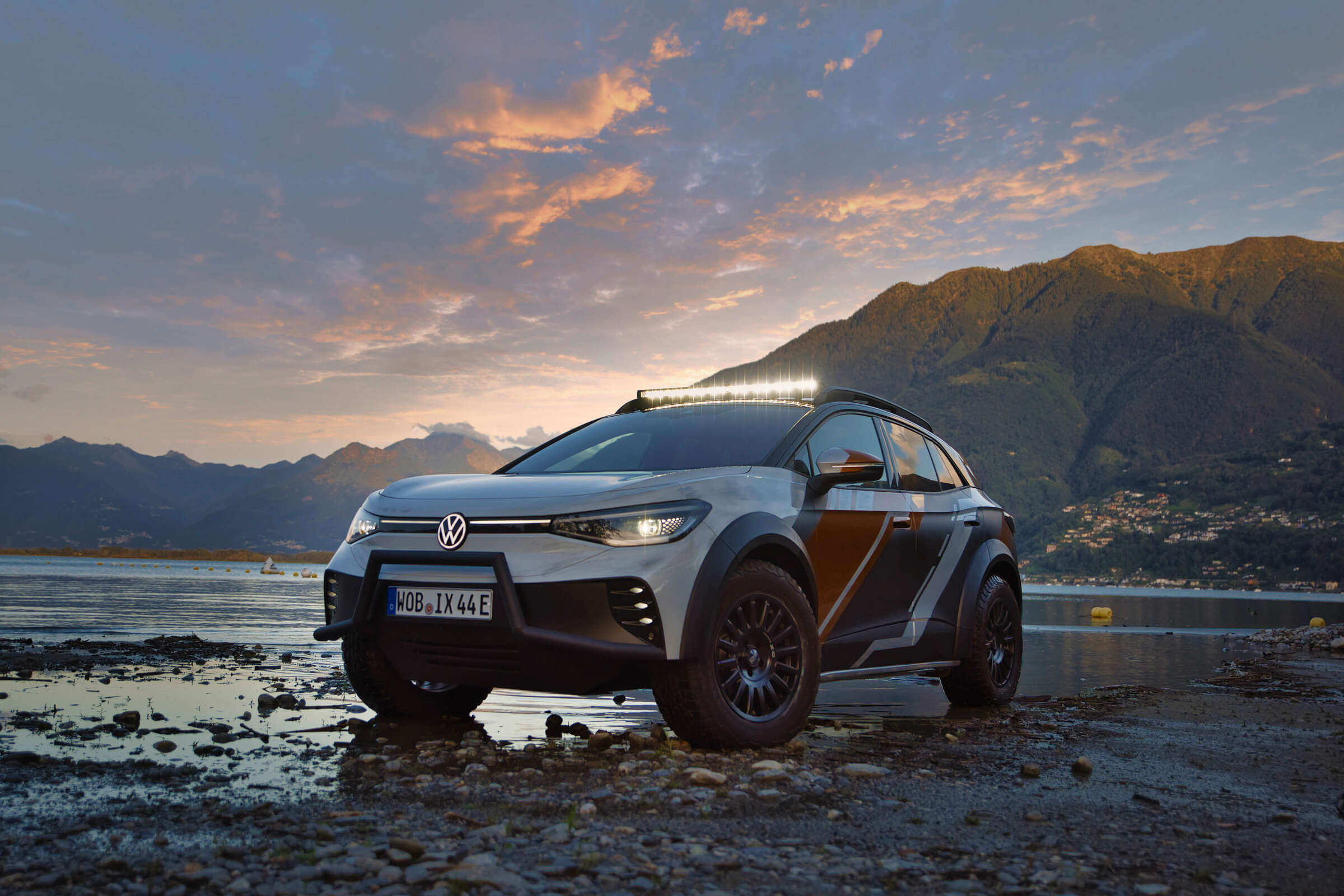December 15th, 2022 | 10:42 CET
Manuka Resources, Volkswagen, Mercedes Benz - Strong demand for resources for electromobility
A major restructuring is taking place at Volkswagen. The new chief designer will be Michael Mauer, who was previously responsible for the design of Porsche. The Wolfsburg company has big plans and wants to become the No. 1 EV manufacturer in Australia. It is precisely in this country that Manuka Resources mines the essential metals for the energy transition. From gold and silver to vanadium, the Company offers value chains from which investors focusing on renewable energies can benefit. Mercedes Benz, the big flagship from Stuttgart, also relies on renewable energies and is massively expanding its battery production sites.
time to read: 5 minutes
|
Author:
Juliane Zielonka
ISIN:
Manuka Resources Limited | AU0000090292 , VOLKSWAGEN AG ST O.N. | DE0007664005 , MERCEDES-BENZ GROUP AG | DE0007100000
Table of contents:

"[...] Nickel, therefore, benefits twice: firstly from its growing importance within batteries and secondly from the generally growing demand for such storage. [...]" Terry Lynch, CEO, Power Nickel
Author
Juliane Zielonka
Born in Bielefeld, she studied German, English and psychology. The emergence of the Internet in the early '90s led her from university to training in graphic design and marketing communications. After years of agency work in corporate branding, she switched to publishing and learned her editorial craft at Hubert Burda Media.
Tag cloud
Shares cloud
Manuka Resources - Well equipped for the RE boom with silver and vanadium
Silver is indispensable in the production of solar cells and electric vehicles. Because of its conductivity and corrosion resistance, silver is needed for conductors and electrodes. Almost every electrical connection in an electric vehicle uses silver, and a total of 1.5 million kg (55 million ounces) of it is consumed annually in the automotive sector.
Investors interested in the silver market should sharpen their focus on renewable energies. Countries worldwide are investing in renewable energy, which can mean long-term growth for silver. Thanks to public investments in electric cars and solar energy, the chances of going long are excellent.
A gold and silver producer on which investors should keep an eye is Manuka Resources. The word "Manuka" is a Maori name for a tree in New Zealand whose honey is said to have healing properties. The Australian company has been active in producing the precious metals since 2020 and has production facilities in the region around the mining town of Cobar, about 700 km from Sydney.
The Manuka Resources team is adding other strategically valuable regions to broaden the Company's proprietary portfolio, increasing value for its shareholders. The South Taranaki production facility is the most recent acquisition, a world-class asset. Located on the coast of New Zealand, this facility manages vanadium and titanium magnetite projects. Vanadium finds its use in the steel industry. It is estimated that annual vanadium production will account for between 12 and 15% of world production. As a result, this acquisition of Manuka Resources has the potential to generate significant profits in less than three years. Historical vanadium sales growth has been stable at 3% per year. Demand due to the RE boom is forecast to double in the next five years.
Volkswagen AG: Number 1 for electric cars in Australia in 5 years
Volkswagen has become the first automaker in Australia to announce that its electric vehicles will overtake sales of gasoline and diesel models in 2028. "Our ambitions are clear; we are not here to dip our toe in the water," Ralph Beckmann, general manager for product and marketing at Volkswagen Australia, said at a press conference this week.
For 2024, we are targeting a volume of 6,500 electric vehicles as part of the sales mix. And from 2025 to 2030, we plan to sell 150,000 electric vehicles during that period. That means that by 2028, based on current planning, electric vehicles will overtake gasoline and diesel models in our portfolio in Australia.

Volkswagen Australia plans to launch the ID.4 and ID.5 electric SUVs by the end of 2023. In addition, Volkswagen is strengthening its digital information offering for interested buyers. With online information portals for cost calculation and amortization of the purchase price compared to petrol and diesel cars and the running costs, the Wolfsburg-based Group is building further bridges for the in-house energy transition.
"By 2026, the Volkswagen Group will invest EUR 52 billion in electric mobility, and by 2030, a total of six gigafactories will be in operation worldwide, ensuring that the pace of EV development can keep up with the supply of battery technology," adds Beckmann.
There are strategic changes within the Group itself. Chief Designer Michael Mauer (60) is once again taking over the sceptre for the design supremacy of the vehicles. His predecessor Zyciora is leaving the Company. Mauer was previously Porsche's Chief Designer. In his new role, he reports directly to CEO Blume. One of the strongest aces up the Wolfsburg-based company's sleeve is and remains product design. The reorganization follows the unified approach for key departments of the individual brands - Volkswagen: production and purchasing; Audi: sales and quality; and Porsche: development and design.
Mercedes-Benz invests mid-single-digit billion amount in factory battery production
Mercedes-Benz is also setting the course for the expansion of its electromobility. According to Reuters, the German factories in Kamenz (Saxony), in Brühl (Baden-Württemberg) and internationally in Beijing will initially start producing batteries for new EQ electric models from 2024.
The Stuttgart-based carmaker puts the size of the investment at a "mid-single-digit billion amount." The transition from internal combustion engines to e-components is complex, he said. "The most important thing is that we can attract colleagues who have built top-class internal combustion engines to build powertrains in the future." That means the current skilled personnel urgently need to be retrained. At this point, works council head Ergun Lümali emphasizes the exclusion of layoffs until the end of the decade.
"The whole world knows that the new technologies require fewer employees. We will be happy if we can secure the existing workforce." Specifically, battery assembly is to be built at the Kölleda (Thuringia) plant, which previously specialized in combustion engines.
So far, Mercedes-Benz has been sourcing battery cells from CATL and Farasis in China, and SK Innovation and LG Chem in South Korea. Mercedes recently opened a battery factory in Bipp County, Alabama, not far from the Tuscaloosa plant. In a few years, Mercedes-Benz plans to purchase battery cells from its joint venture ACC with Opel's parent company Stellantis in Kaiserslautern. Let's hope that the energy market calms down again by then and that the economic supply of gas or other energies does not further endanger the production sites in Germany.** Mercedes wants to convert its production entirely to electric by 2030. Provided that demand is correspondingly high.
Demand for electromobility is growing rapidly. Global players such as Volkswagen and Mercedes-Benz are forcing the change in their production chains. Above all, Manuka Resources provides precious metals and rare earths that are indispensable for the energy transition. This is because past vanadium sales, for example, have been running at 3% per year. Due to the boom in renewable energies, growth and the resulting demand are forecast to double in the next five years. Volkswagen is increasing its focus on excellent design and is bringing the Porsche designer into the parent company. Meanwhile, the Mercedes-Benz Group is building strategically important battery production sites to prepare for the transition.
Conflict of interest
Pursuant to §85 of the German Securities Trading Act (WpHG), we point out that Apaton Finance GmbH as well as partners, authors or employees of Apaton Finance GmbH (hereinafter referred to as "Relevant Persons") may hold shares or other financial instruments of the aforementioned companies in the future or may bet on rising or falling prices and thus a conflict of interest may arise in the future. The Relevant Persons reserve the right to buy or sell shares or other financial instruments of the Company at any time (hereinafter each a "Transaction"). Transactions may, under certain circumstances, influence the respective price of the shares or other financial instruments of the Company.
In addition, Apaton Finance GmbH is active in the context of the preparation and publication of the reporting in paid contractual relationships.
For this reason, there is a concrete conflict of interest.
The above information on existing conflicts of interest applies to all types and forms of publication used by Apaton Finance GmbH for publications on companies.
Risk notice
Apaton Finance GmbH offers editors, agencies and companies the opportunity to publish commentaries, interviews, summaries, news and the like on news.financial. These contents are exclusively for the information of the readers and do not represent any call to action or recommendations, neither explicitly nor implicitly they are to be understood as an assurance of possible price developments. The contents do not replace individual expert investment advice and do not constitute an offer to sell the discussed share(s) or other financial instruments, nor an invitation to buy or sell such.
The content is expressly not a financial analysis, but a journalistic or advertising text. Readers or users who make investment decisions or carry out transactions on the basis of the information provided here do so entirely at their own risk. No contractual relationship is established between Apaton Finance GmbH and its readers or the users of its offers, as our information only refers to the company and not to the investment decision of the reader or user.
The acquisition of financial instruments involves high risks, which can lead to the total loss of the invested capital. The information published by Apaton Finance GmbH and its authors is based on careful research. Nevertheless, no liability is assumed for financial losses or a content-related guarantee for the topicality, correctness, appropriateness and completeness of the content provided here. Please also note our Terms of use.




